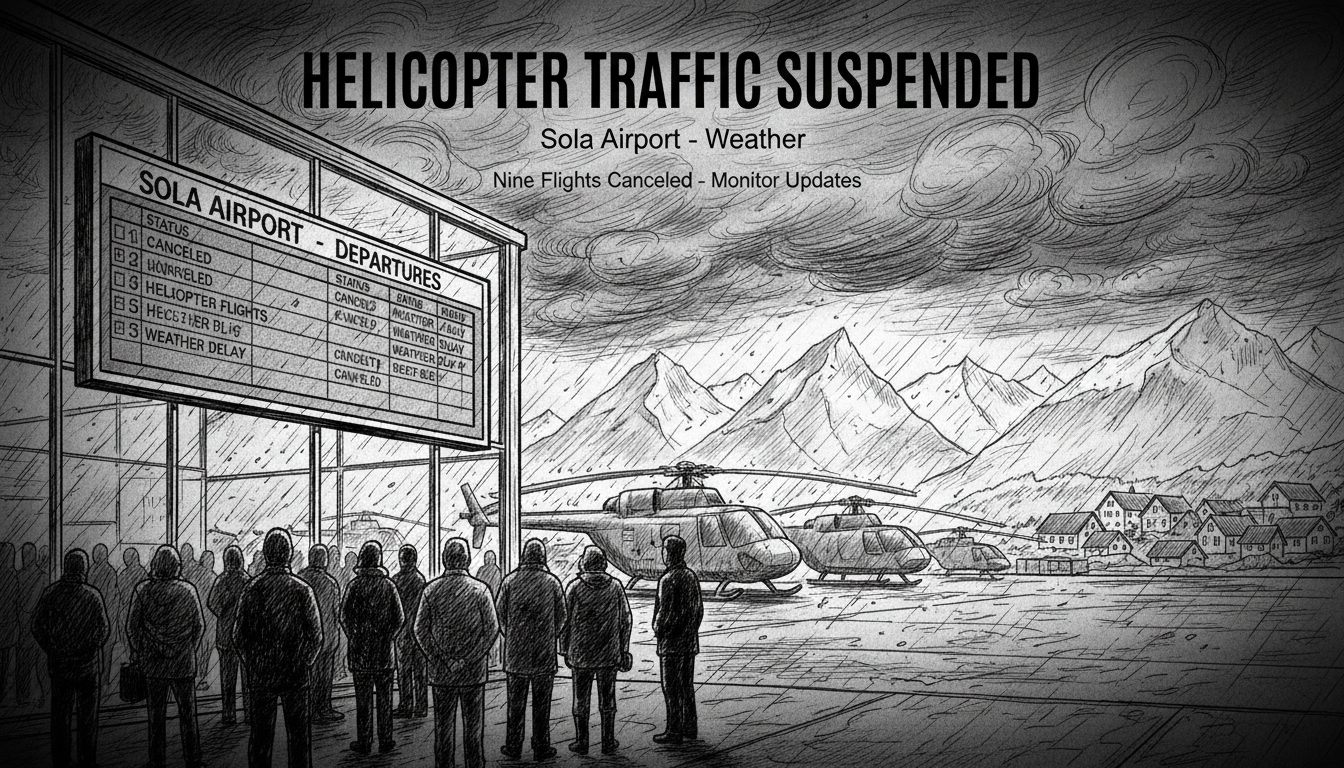Multiple helicopter departures from Sola Airport faced cancellations today. Nine scheduled flights appear as canceled on official flight information platforms. The energy company Equinor confirmed the suspension of all helicopter traffic until further notice. The company cited challenging weather conditions as the primary reason for the halt in operations.
Passengers with existing bookings received instructions to arrive at their normal check-in times despite the cancellations. This approach allows for potential rapid resumption of services when weather conditions improve. The situation creates uncertainty for offshore workers and other travelers relying on helicopter transport.
Sola Airport serves as a critical transportation hub for Norway's offshore energy industry. The facility handles regular helicopter flights to oil and gas installations in the North Sea. Weather-related disruptions occur periodically but typically resolve within hours. Extended suspensions can impact offshore operations and worker rotations.
Norway's offshore transportation system maintains strict safety protocols. Helicopter services suspend operations during adverse weather to ensure passenger safety. The country's aviation authorities enforce rigorous standards for offshore flights. These measures have contributed to Norway's strong safety record in offshore aviation.
Energy companies operating in Norwegian waters depend on reliable helicopter transport. Workers typically commute to offshore installations for multi-week shifts. Transportation delays can disrupt carefully scheduled rotation patterns. Companies maintain contingency plans for weather-related service interruptions.
The current suspension highlights the vulnerability of offshore operations to natural conditions. Norway's coastal weather can change rapidly, particularly during transitional seasons. Aviation services must balance operational efficiency with uncompromising safety standards. This sometimes means grounding flights until conditions stabilize.
Travelers affected by the cancellations should monitor official communication channels. Service restoration depends entirely on weather improvement. The aviation operator will likely provide updates as conditions evolve. Passengers should maintain contact with their travel coordinators for the latest information.
This situation demonstrates the practical challenges of operating in Norway's offshore environment. While modern forecasting helps anticipate weather patterns, sudden changes still occur. The transportation system prioritizes safety over schedule adherence, reflecting Norway's commitment to workplace safety standards.

